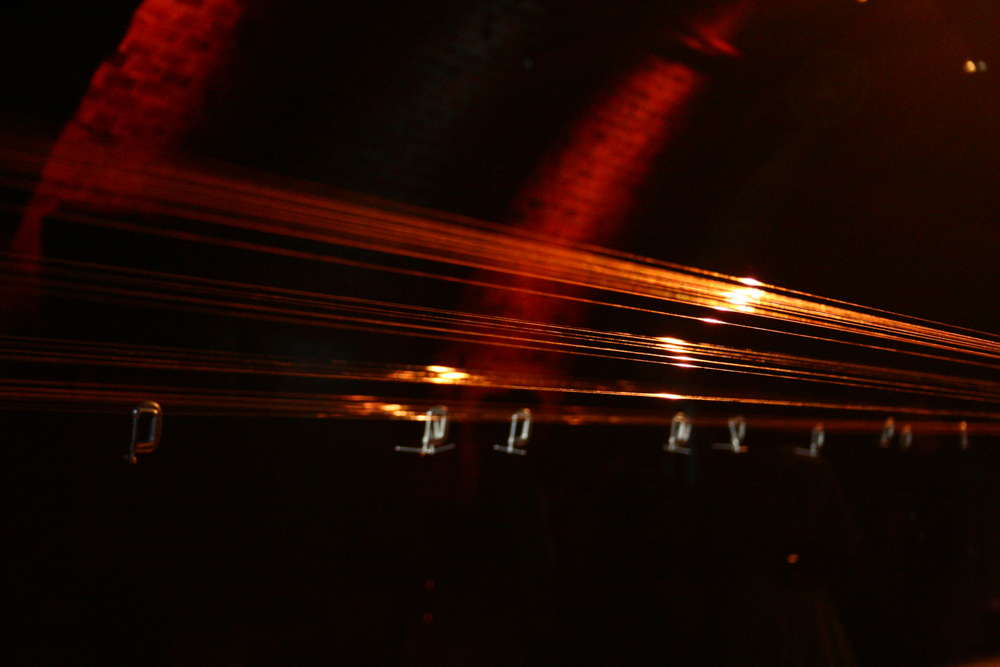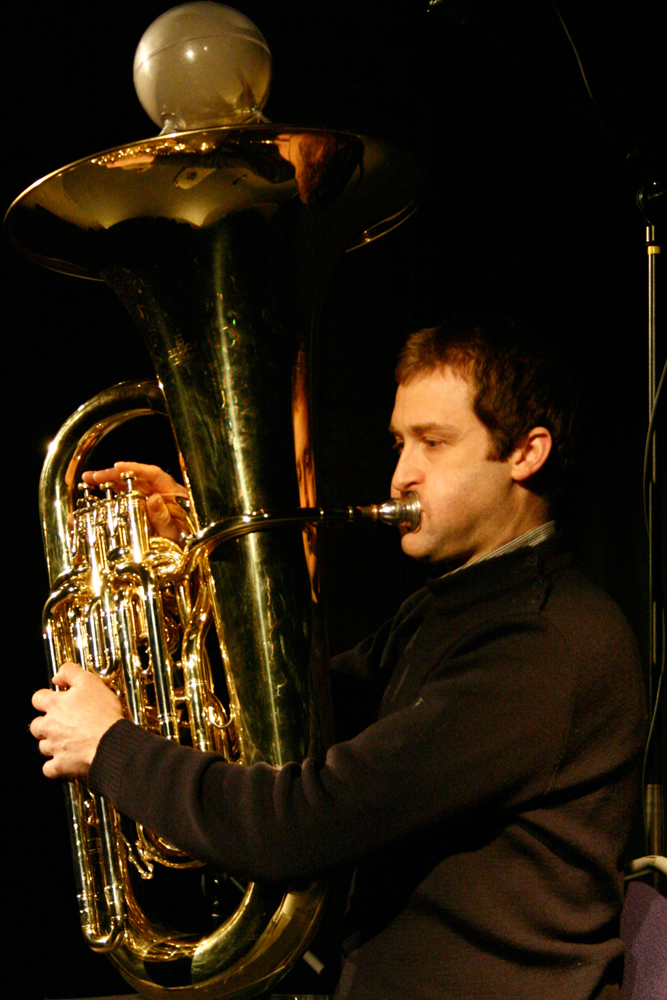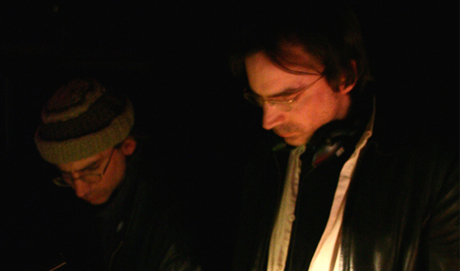
Self Cancellation – Asymptotic Freedom / Feedback Wire Drawing
Benedict Drew John Butcher
John Butcher plays and manipulates a feeding back saxophone. Benedict Drew on electronics, broken cables and standing waves.
Arika have been creating events since 2001. The Archive is space to share the documentation of our work, over 600 events from the past 20 years. Browse the archive by event, artists and collections, explore using theme pairs, or use the index for a comprehensive overview.

John Butcher plays and manipulates a feeding back saxophone. Benedict Drew on electronics, broken cables and standing waves.

Long Stringed Instrument performance involving up to 100 wires strung in tension over a 40m arch.

Robin Hayward – exploring the micro-sounds of a tuba, filling slowly with sand.

Quasi-theatrical multiple-projector pieces play with the relationship between performers, art and audiences.

Includes: tamed TV snow, video feedback of racing particles, a remake of a polish photogram film destroyed in WWII, a visual and aural representation of Gestalt theory, hole-punched film and Guy Sherwin’s Cycles 3 double-projection.

A Performance exploring the nature of acousmatic listening; sound removed from visual context and understood for it’s own properties.

Do almost nothing: re-present (unaltered and arranged by chance) silent family home movies handed down to Flo, (Ken’s wife) and follow them with a “teach yourself Yiddish” cassette tape.

Although Tony had visited Haino in Japan, and they played together in private, this was the first time anyone other that Haino’s cat saw them perform together.

A sort of prayer and conference, a sort of scream and dialogue – a monologue and declaration at the time, addressing how we can build complicity with one another.

A system in which oscillators shake The Arches, seismographs pick up the harmonics that are then amplified through massive sub-bass PA.

A performed film lecture exploring how the ‘Rumberas’ of Caribbean cinema of the 40’s and 50’s subverted demeaning images of themselves through dance, sound and a sociality that insisted on blackness as being a cultural performance, not simply due to skin colour.

Dworkin asks: What would a non-expressive poetry look like? A poetry of intellect rather than emotion?